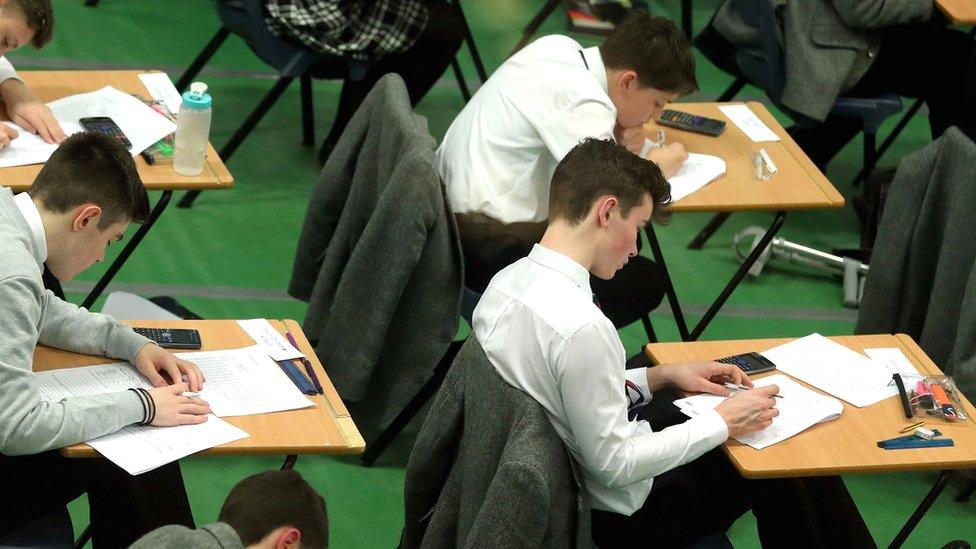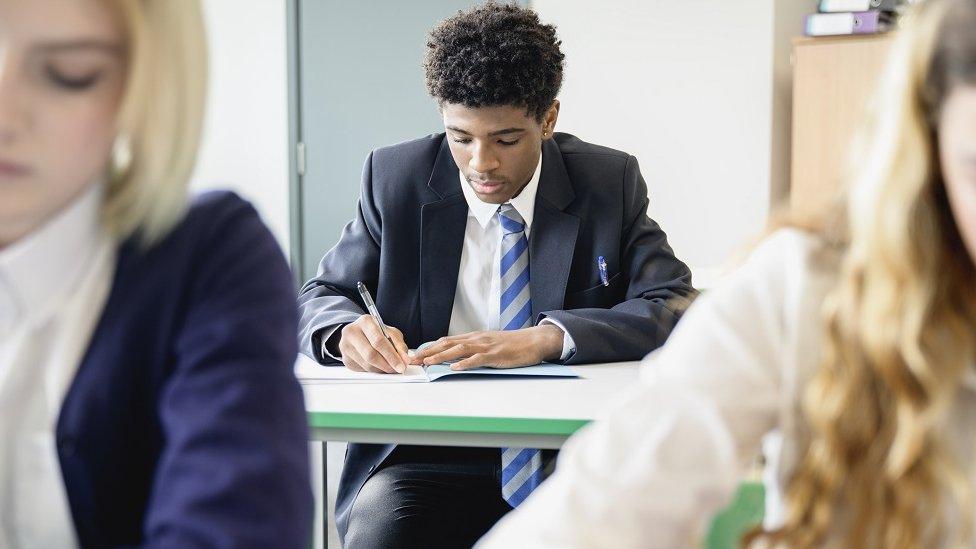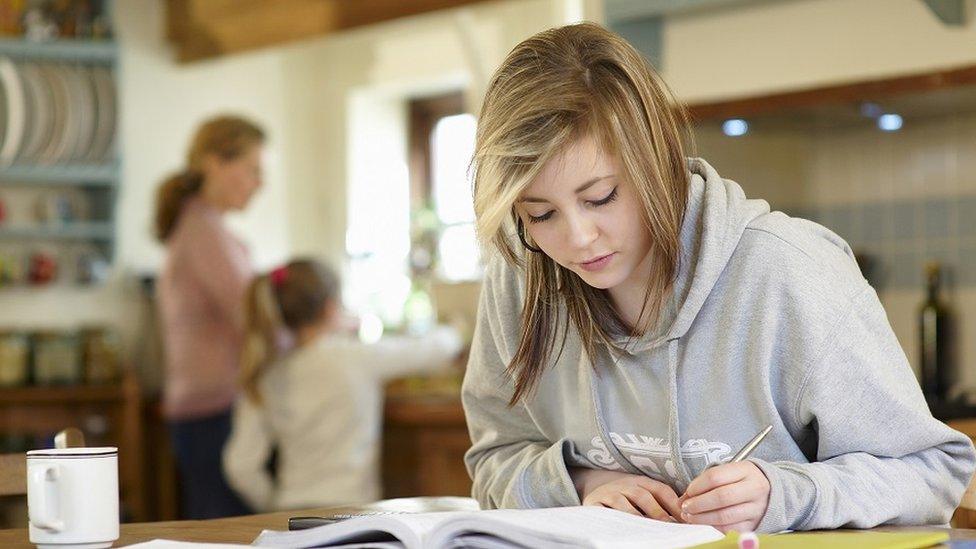A-levels and GCSEs: Covid support in place as exams begin
- Published
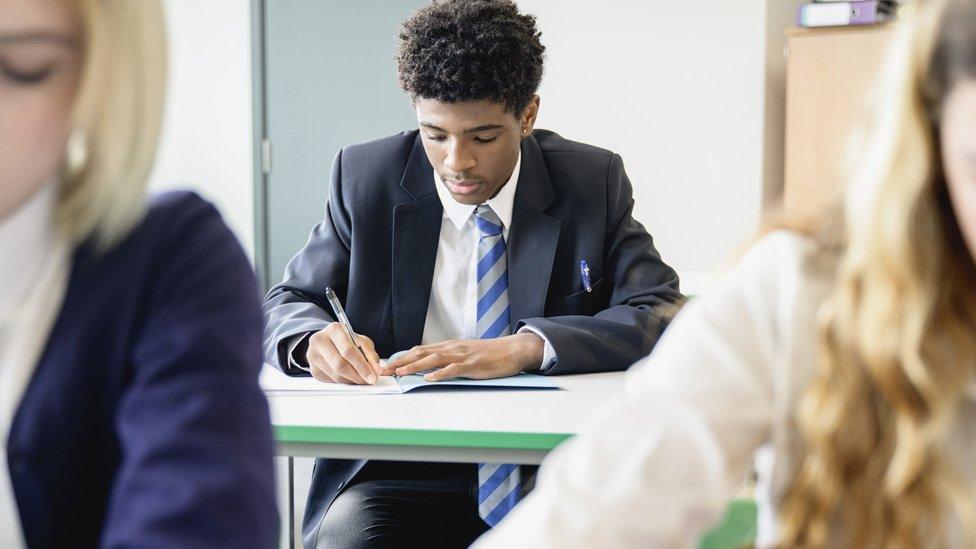
Exams were cancelled in 2020 and 2021 because of Covid
GCSE and A-level students are being told their grades will be protected from Covid disruption, as exams get under way for most students in England, Wales and Northern Ireland.
Extra measures are in place to help pupils, but support varies across the different parts of the UK.
Covid led to an increase in top grades in 2020 and 2021, with results based on teacher assessments instead of exams.
England's exam regulator called this year a "step back to normal".
Unlike last year, students in England have not been given advance information about the topics they are likely to be tested on. Grades are expected to fall back in line with results in 2019.
However, some of the adjusted measures from last year remain in place.
Exams will be spaced apart more than they were prior to the pandemic, allowing for rest and revision.
GCSE students will be given formulae and equations in some subjects, and will not be expected to confront unfamiliar words in language exams.
Outside England, grades are expected to remain higher than they were in 2019.
Teenagers in Scotland have already started exams. Modifications introduced in Covid, such as paring back some assessments, remain in place.
In Wales and Northern Ireland, many students have been given advance information about what will appear in their exam papers.
Vocational technical qualifications, such as BTec courses, are still mostly assessed through practical learning but some exams and assessments have taken place across the year.
As pupils head on study leave, exam boards have warned students not to approach social media accounts claiming to sell exam papers.
In most cases, the papers for sale are fake. Nonetheless, BBC News has been told some students are paying up to £4,000 to get hold of them.
Margaret Farragher, chief executive officer of JCQ, said some accounts on TikTok, Instagram, Snapchat and other platforms "seem intent on scamming students for money".
"This issue is increasing every year," she said.

Have you been scammed by social media accounts claiming to sell exam papers? Get in touch.
WhatsApp: +44 7756 165803, external
Tweet: @BBC_HaveYourSay, external
Please read our terms & conditions and privacy policy

Most teenagers taking GCSEs and A-levels will have been in Year 8 and Year 10 respectively at the start of the pandemic, in 2020.
Many will have experienced further disruption from industrial action this year, although many schools have tried to prioritise exam year groups on days where strike action has occurred.
Rocsi, who is 15 and lives in London, said she was "a little bit nervous" about her GCSE exams, the first of which is Biology, on Tuesday.
"I'm just at the stage now where I want to get it over and done with," she told the BBC.
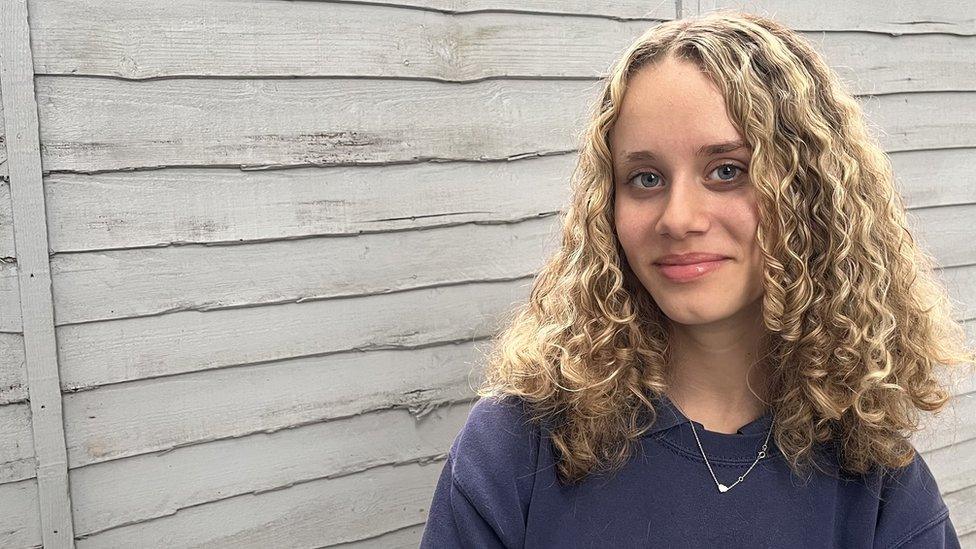
Rocsi feels that her year group has been disadvantaged by Covid because they started some GCSE courses early, in Year 9 - when schools closed to most pupils for parts of the year.
"It did actually impact us," she said. She says her cohort missed out on in-person learning, such as science experiments, which means they should be given additional help in the forthcoming exams.
Rocsi has been able to go into school during recent teacher strikes. She supports the teachers, but says it has made it more difficult to revise.
"They kept having to group us together to change lessons. It was a bit hectic."
'Long shadow'
More than 200 miles away, in Preston, Olivia, 16, feels "pretty confident" about most of her exams - although she also struggles with the practical experiments she missed out on in Year 9.
Olivia thinks her school has been "really good" at supporting her revision with the online learning tools which were first introduced during Covid. She says she used the days her teachers were on strike to revise at home.
"We have logins to certain school apps, and there's videos on there and quizzes for us to do," she said.
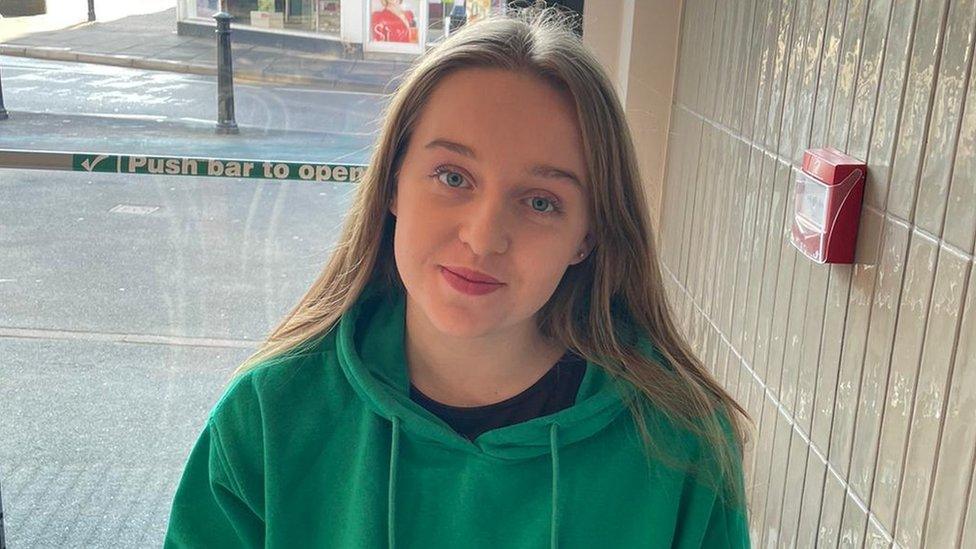
Having equations and formulae in some exams will make the process less of a "memory game", according to Olivia.
"That's not really what they should be testing you on - your memory," she said. "It's if you can actually apply [the formulae] to what you're working out."
Last year, the proportion of top A-level and GCSE grades fell compared to the highs of 2020 and 2021 - but they remained higher than 2019.
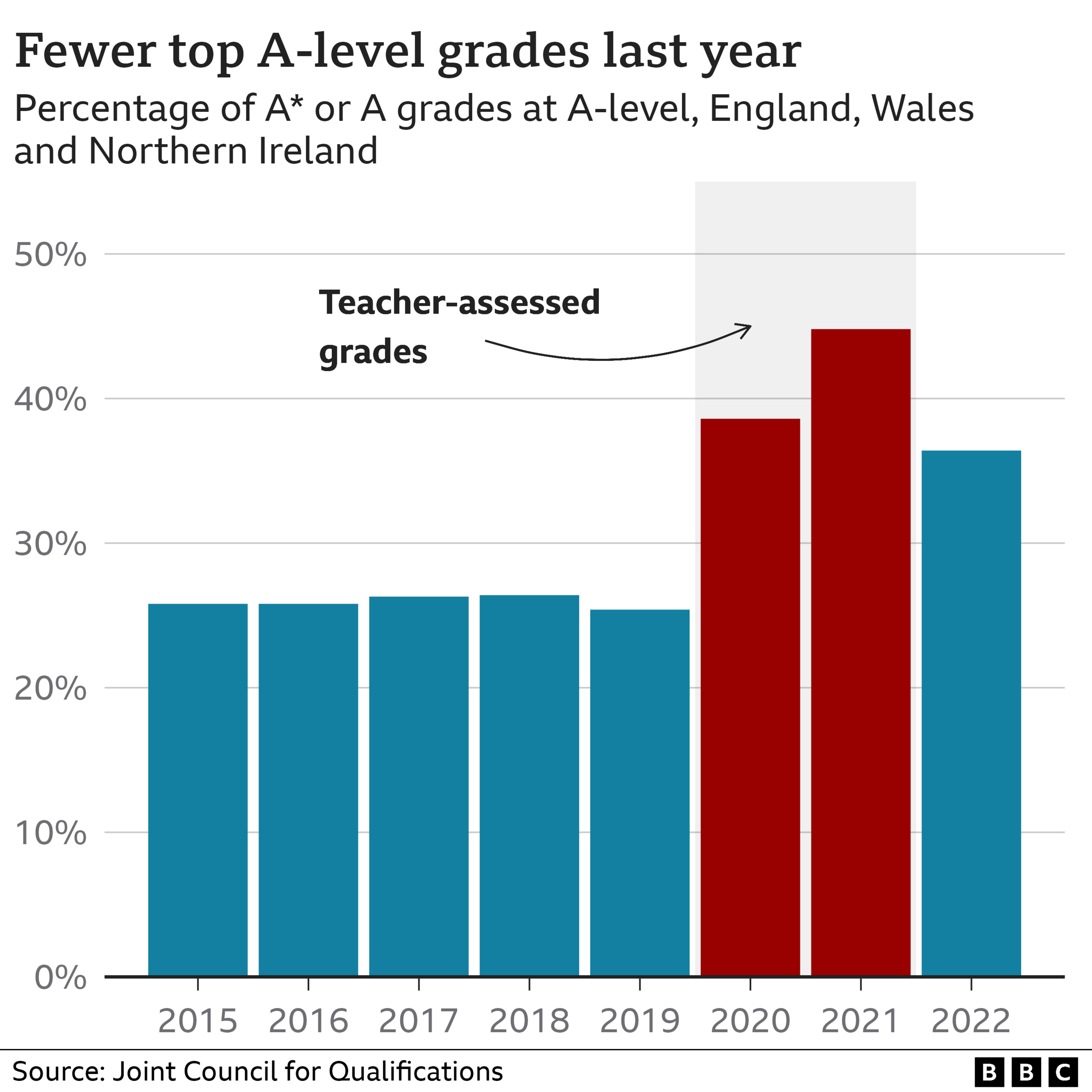
Dr Jo Saxton, head of England's exams regulator, Ofqual, said results would be more similar to pre-pandemic levels this year, and examiners would use data to set grade thresholds that were "fair to students".
She said a return to "pre-pandemic arrangements" would give clarity to universities and employers, but Ofqual recognised that this year's candidates, too, had experienced disruption.
"There's no doubt that the pandemic has cast a long shadow, and that's partly why we've put some protections in place," she said.
"A student should be able to get a grade that they would have got had there not been a pandemic," she said, "even if the quality of their work is a little bit weaker".
She stressed Ofqual had introduced checkpoints and deadlines to ensure that the delays that affected BTec and other results last year would not happen again.
Scarlett, a Year 12 student from Essex, will sit her A-levels next year, but has been assessed for a Level 3 BTec in Performing Arts throughout this year - which most recently involved performing a duet from the musical, Wicked.
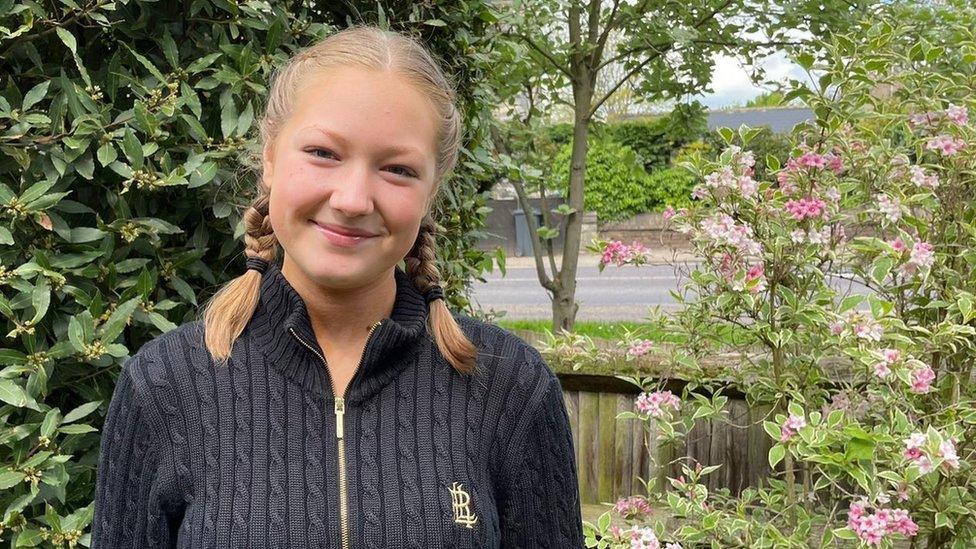
She told the BBC that this year was more "exciting" than her Level 2 BTec, when Covid restrictions meant she was unable to see some of the plays she was meant to be studying.
"There's definitely more opportunities, because we're able to put on live performances and attend shows and see different things that I wouldn't have been able to do last year," she said.
"Everything's kind of ironed out."
Additional reporting by Branwen Jeffreys and Sallie George.
- Published15 April
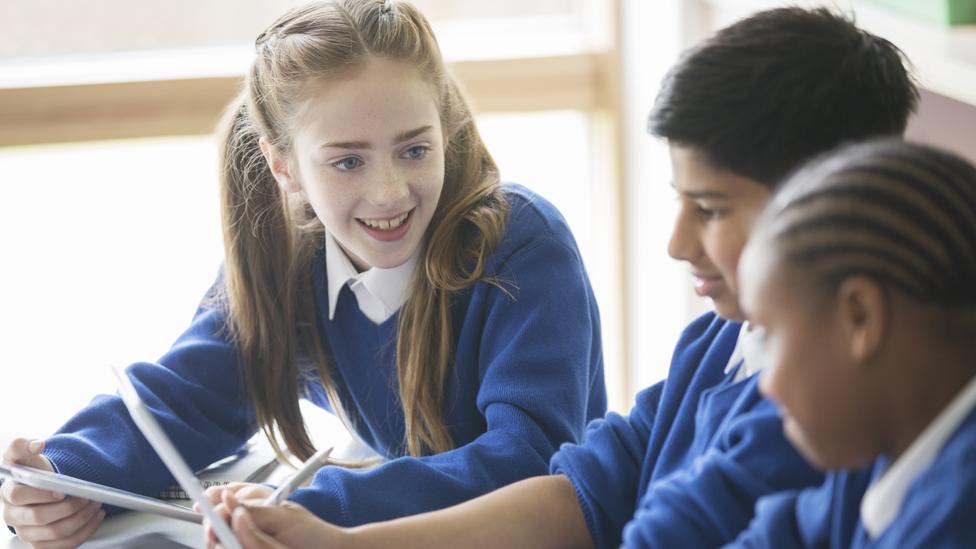
- Published24 April 2023
